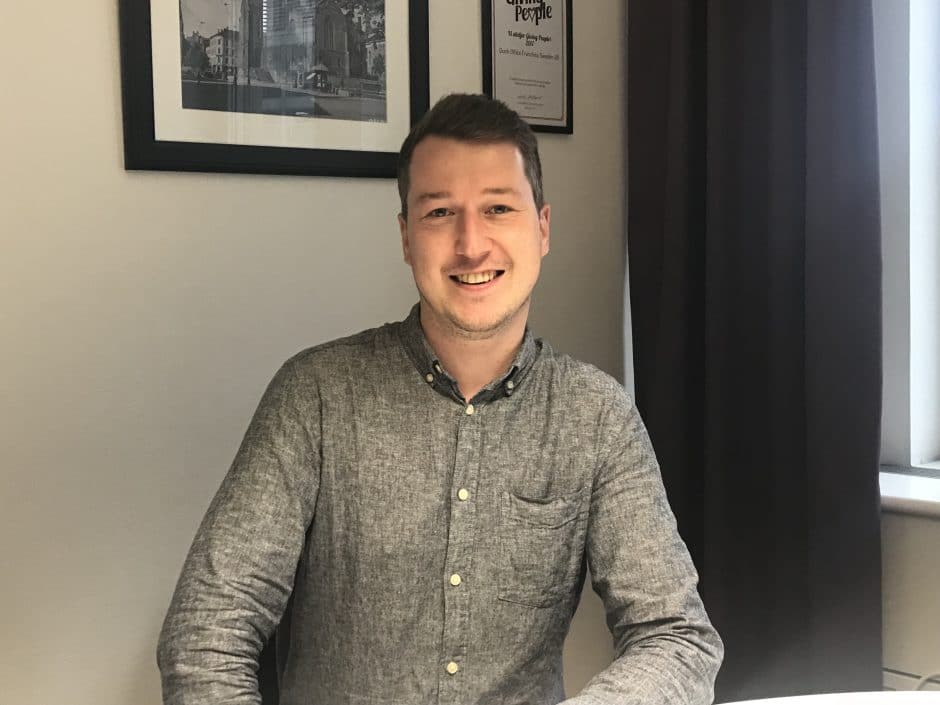Interview with Nico Wolf, CFO, Endless Energy – Winner of the Climate KIC Finance Incubator Competition

The Climate KIC community comprises a rich diversity of expertise, skills and perspectives across our alumni, start-ups, innovation partners, advisors and associates, all of whom contribute to our innovation capacity.
Following their winning proposal at the Finance Incubator Competition at the Climate Innovation Summit in Dublin, we spoke to Nico Wolf from Endless Energy.
What is your elevator pitch?
Endless AB has been focused on the Brazilian distributed energy market since 2016. Brazil is the largest power market in Latin America and has a huge potential combined with great conditions for distributed solar energy as the energy matrix remains highly reliant on large-scale hydropower plants. These power plants are heavily affected by climate change-induced droughts resulting in short-term replacement by costly and dirty fossil fueled electricity generation. Distributed renewable energy can substitute these needs while being more climate-friendly and pushing for energy democracy, away from utility-scale generation and long-distance transmission, simultaneously.
Endless supports developers to make solar projects in the distributed energy market financeable and to bridge European capital to solar projects in Brazil. Currently, we are providing financial consulting to a total of 10 MW of projects in various regions of Brazil. Besides this, we are working on the implementation of the “Distributed Energy Social Housing Fund.”
What are you working on with Climate KIC?
Since winning Climate KIC’s Finance Incubator Competition at the Climate Innovation Summit in November 2018, Climate KIC has been supporting Endless’ efforts to set up the “Distributed Energy Social Housing Fund” (DESH).
DESH was created to enable distributed solar energy for the low-income population of Brazil, who do not have access to credit and clean energy. By providing a robust legal and financial structure to make it an attractive and low-risk investment option for institutional capital and climate funds, we will be able to access this untapped market while creating positive social and environmental effects.
We have been working closely on DESH with the Climate Finance Lab, lead by the Climate Policy Initiative (CPI) for over a year. The first phase of installing 15 MW of distributed solar will take place in the state of Minas Gerais, where we have been working with the municipality of Belo Horizonte.
What are three implications of this work?
The first phase of DESH amounting to 15 MW of distributed solar energy projects will generate 23.6 GWh of clean solar energy per year. These solar PV power plants will avoid carbon dioxide emissions of 8,278 tonnes of CO2 eq per year. In this initial phase, we will be able to substitute most of the energy needs with solar energy for approximately 26,000 households representing over 80,000 people.
Our target group are households with a monthly average income of around $500 USD. Providing a 15 per cent discount on the consumed solar energy, compared to the utility’s electricity prices, will free up some of the household’s budget and act as an additional incentive for interested off-takers.
The DESH program can potentially make participants eligible for conventional credit lines in the long run if we can prove their payment morale to financial institutions.
Can you describe your most important success and failure throughout your journey so far?
Every first-time achievement has turned into our most important success. If there is an idea you believe in, that you have spent months or years with, turning it into a viable business, then the first recognition or the first payment you receive will feel like the most important success. Being accepted into the “Low Carbon Business Action” network, being supported by CPI and the Lab and winning Climate KIC’s competition all felt like the most important success each given time. Most recently, we have been acquired by the ReCap Group which marks another important milestone in our journey with Endless.
The failure I can mention is the time we wasted a chance with an important investor to broker a large solar project which ended up being not as advanced as we were told, and the deal failed. Of course, every missed chance is a learning opportunity, especially in an early stage venture.
What or who gives you hope or inspiration in the fight against climate change?
I don’t think I can point out a single person that gives me inspiration but rather I want to emphasise the collective strength of a group of people who are involved in the fight against climate change and come up with and support innovative ideas and businesses with their energy and passion. I enjoy meeting like-minded people and sharing experiences and ideas at conferences, fairs, summits and accelerator/incubator events. It is the interaction and support that give me hope to keep working on replacing fossil-fueled electricity generation with solar energy.
